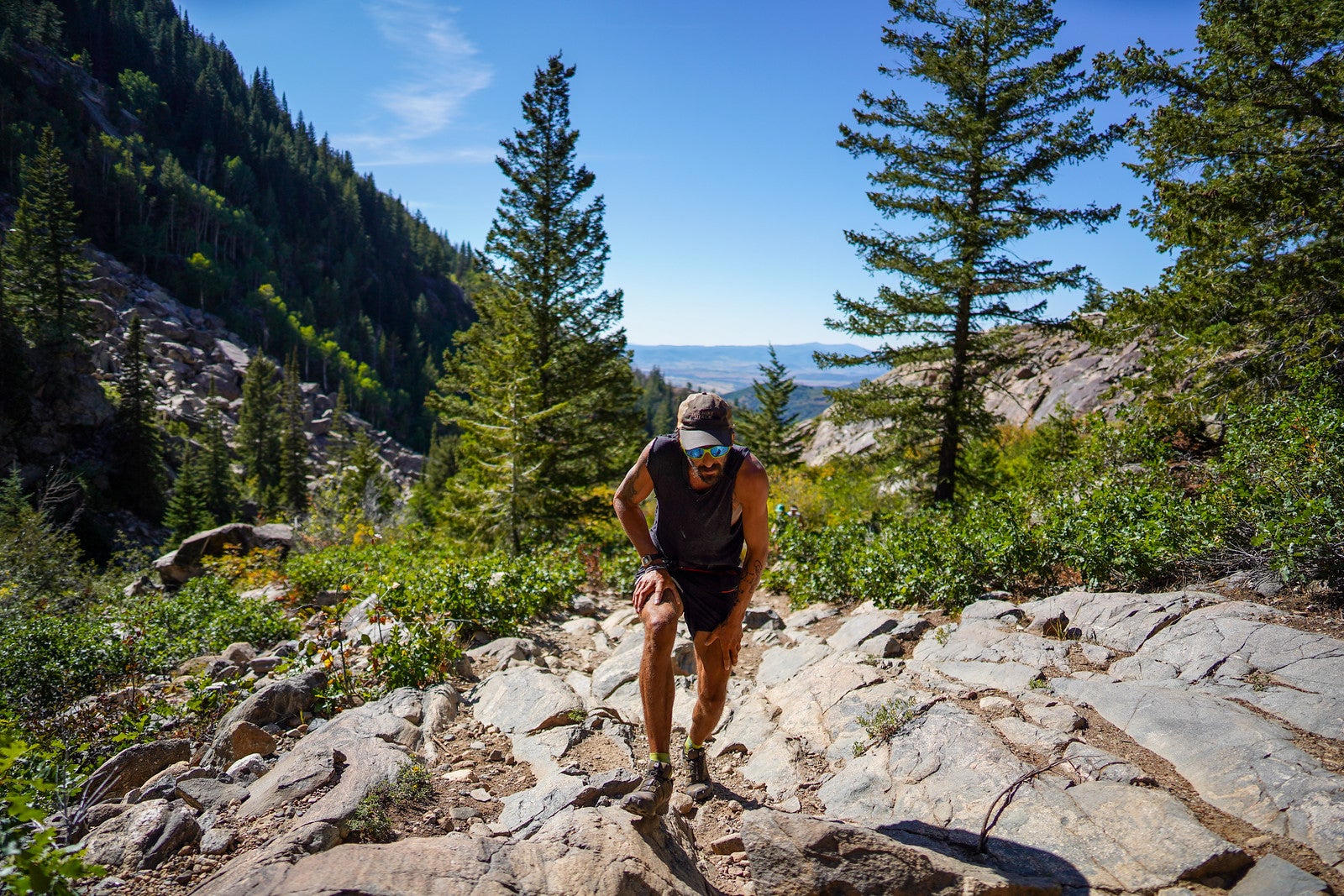The Run Rabbit Run 100 Is Back

Paul Nelson
The colors are starting to pop in Steamboat Springs, Colorado, just as runners are starting to converge for the Sept. 17-18 Run Rabbit Run trail races.
With groves of quaking aspen trees turning from green to gold in recent days, it will be an idyllic time to run the 50- and 100-mile races in this venerable mountain town. With warm temperatures forecasted during the day (upper 70s) and cool weather (low-40s) expected at night, it’s shaping up to be a classic fall running experience.
“The colors are just starting to turn and if we’re lucky, runners will be running down the Flash of Gold trail and it will be just golden all around,” says Paul Sachs, one of founders and directors of the race. “It’s a beautiful place to run and a beautiful time of the year, and right now it’s just gorgeous.”
Both the 50- and 100-mile races figure to be extremely competitive — certainly among the most competitive U.S. races of the year. That’s partially because many faster runners have targeted the events as a late-summer goal race but also because there’s $75,000 in prize money on the line. Both races send runners on out-and-back courses predominantly on singletrack trails that venture between 6,500 and 10,500 feet above sea level.
RELATED: How to Train for a 100-Mile Race
The women’s 100-mile field is a talented and experienced group of runners that includes Addie Bracy, Alissa St. Laurent, Erin Clark, Nicole Bitter, Kerrie Bruxvort, Gwen Golaszewski, Amelia Boone, Abby Levene, Melissa Beaury, Arden Young, Sarah Keyes, and Salynda Heinl, among others.
Bracy (35, Denver) didn’t have the result she was hoping for at the Western States 100 in late June but rebounded to set an impressive course record (11:53, fourth overall) at the Never Summer 100K a few weeks later. Heinl (36, Aspen Park, Colorado) won the High Lonesome 100, Quad Rock 50 and Desert Rats Marathon in Colorado this year and is a four-time top-10 finisher at Run Rabbit Run.
Clark (26, Missoula, Montana) hasn’t run many ultras, but her runner-up showing at the Bandera 100K in January indicates she could be a contender. Beaury (41, Moab, Utah), Bitter (39, Phoenix) and Bruxvort (45, Broomfield, Colorado) have all had top-five success at RRR in the past, while Keyes (36, Saranac Lake, New York) is coming off a solid 12th place showing at Western States in June. Canadian runners St. Laurent (37) and Young (35) are also strong contenders, but there is some unknown as to whether they’ll make it to the race because of Covid-19 quarantine restrictions.
The men’s 100-mile field is shaping up to be one of the deepest in the race’s history. Anthony Costales (32, Salt Lake City) is coming off a record-smashing win (9:11;40) at the Canyons 100K in Foresthill, California, and won a 50-miler and 50K in Moab earlier in the year. Kyle Pietari (35, Denver) won the RRR100 in 2019 and is coming off a sixth-place effort at this year’s Western States 100. Julien Chorier (40, France) placed fourth at the July 15 Hardrock 100, a race he previously won (2011) and placed second (2014). He also owns five top-10 finishes at the Ultra-Trail du Mont-Blanc. Mark Hammond (36, Cottonwood Heights, Utah) is one of the most successful RRR100 runners ever, with five strong finishes at a runner-up showing in 2018 to go along with three top-five efforts at the Western States 100.
Otherwise, Jeff Mogavero (27, Missoula, Montana), Dakota Jones (30, Bozeman, Montana), Jonathan Rea (29, Boulder, Colorado), Tyler Fox (28, Fort Washakie, Wyoming) and top local runner Devon Olsen (34, Steamboat Springs) are among a dozen other runners who have solid race resumes and figure to be in the running.
In the 50-mile races, several Colorado runners should be among the top contenders, including Ryan Sullivan, Dillon Gotshall, Andy Salterelli, Chase Fulford and Tristam Eastham on the men’s side and Mary Baughman, Andrea Wilhelm, Marissa Asplund, Kara Hellige and in the women’s race. And don’t count out 53-year-old Utah runner Holly Hagerman, who placed third in the RRR 50 in 2018 and is coming off a strong third-place effort in the Continental Divide 50K on Aug. 21 in Steamboat.
Nearly 650 runners are signed up for the event’s three race divisions. (Track runner progress on the courses at this link.) The 331 runners in the 100-mile “Tortoise” race will begin early on Friday morning, followed 99 runners in the 100-mile “Hares” starting wave at noon. There’s a 36-hour cutoff for the Tortoises and a 30-hour cutoff for Hares. Meanwhile, 211 runners will toe the line for Saturday’s 50-mile race, which has a 15-hour cutoff.
Since its inception, Run Rabbit Run has offered one of the largest trail running prize purses in the world, with $15,000 going to the men’s and women’s winners in the Hares division of the 100-mile race this year. (It also expects to give between $30,000 and $40,000 to its charity partners this year.)
“The reason we offer prize money is because we need to promote the sport in the U.S. with races that have competitive fields,” said race co-founder Fred Abramowitz. “Competitive fields attract interest and competitive fields allow people to start relating to the athletes, and when they start following those athletes, the athletes wind up getting better sponsorship deals and there is more interest in the sport.”